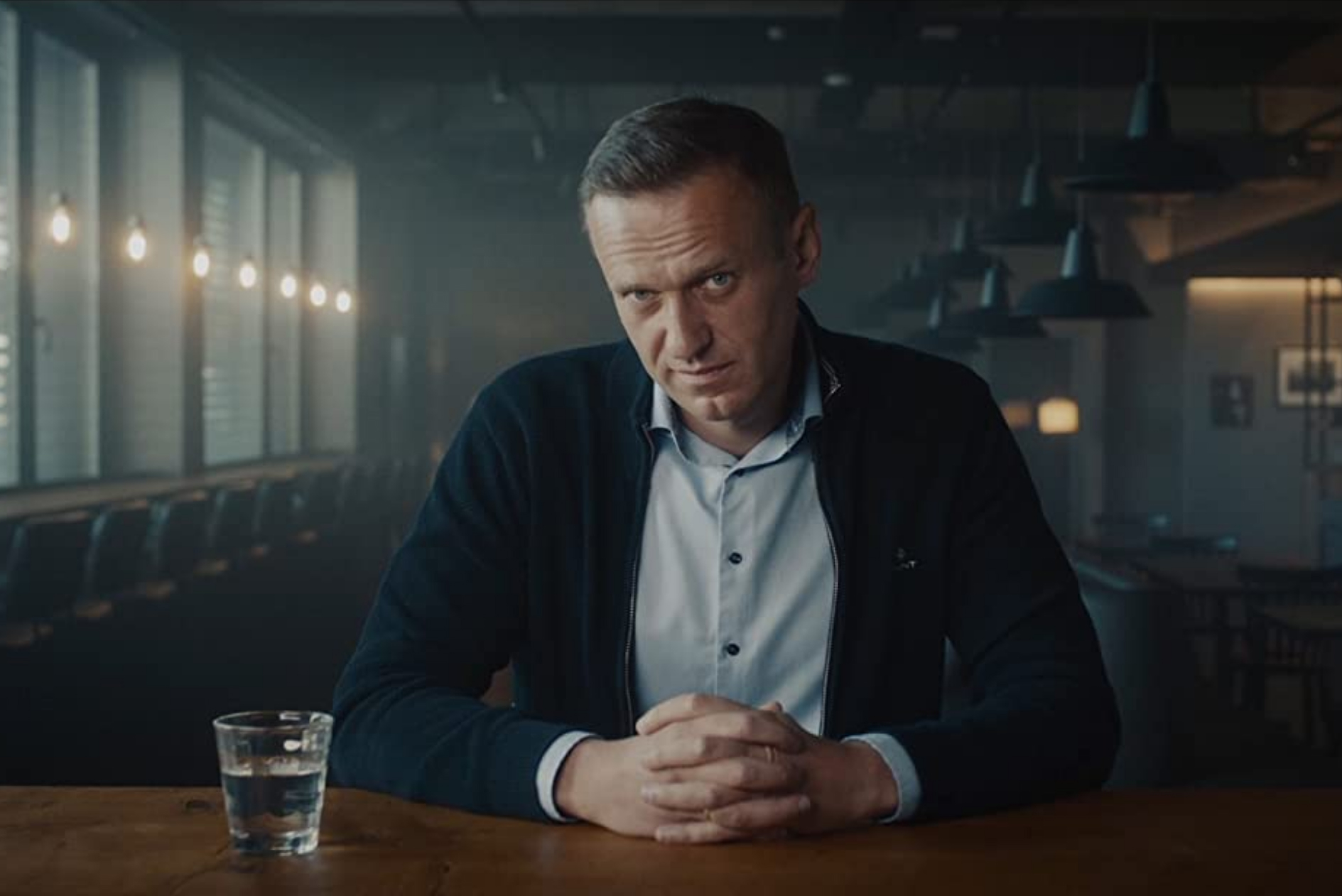
- Festivals
Sundance 2022: Bombshell Documentary “Navalny” Exposes Autocratic Insecurity
In addition to minimizing political pluralism, pitting social groups against one another, and consolidating power by ginning up enemies of the state, authoritarian regimes survive and thrive by strangling hope — targeting those able to land real, sustained, and potentially lethal critiques to the body politic, and making examples out of them.
In Russia over the last decade or so, no homegrown figure has posed more of a threat to the iron-fisted rule of President Vladimir Putin (who’s so spooked that he won’t refer to him by name) than Alexei Navalny, a lawyer whose anti-corruption activism catapulted him to the status of chief opposition leader.
In August 2020, Navalny became violently ill on a flight to Moscow. Evacuated from the plane, he was taken for treatment in Berlin, where it was confirmed that he had been dosed with a Novichok nerve agent. The lethal poison leaves the body entirely and is difficult to trace. On January 17, 2021, the 45-year-old dissident would be immediately arrested upon his return to Russia. He remains on a two-and-a-half-year sentence in a corrective labor facility. Alexei Navalny is recognized by Amnesty International as a prisoner of conscience.
The forthrightly titled nonfiction film Navalny (announced as an addition to the 2022 Sundance slate only after the festival began) picked up both the U.S. Documentary Audience Award and Overall Festival Favorite prizes. It chronicles this months-long period in exile when Navalny was jointly recuperating and plotting his next moves.
It’s a vital sociopolitical document, coursing with currency, which leverages incredible access to tell an important story of courageous dissent, exposing Putin as a would-be mafioso and Russia as his hijacked nation-state criminal syndicate.
Directed by Daniel Roher (Once Were Brothers: Robbie Robertson and the Band), the movie opens with a bit of biography, detailing Navalny’s background and the events leading up to his poisoning. In relatively short order, though, the identity of Navalny’s would-be killers is unraveled. Self-described “Bulgarian nerd” Christo Grozev, whose Netherlands-based investigative journalism website Bellingcat mines data to reveal crime and corruption, quickly uncovers compelling evidence of a Russian domestic assassination program on an industrial scale, run out of the Signal Institute in Moscow.
Roher documents this all with a mixture of matter-of-fact clarity and entertaining aplomb. Navalny expresses gobsmacked bemusement at the absurdity of Putin using a nerve poison with definitive ties to previous Russian assassination attempts — there’s even footage of him recording TikTok videos with his daughter, set to OMC’s “How Bizarre,” for his millions of followers, in front of a good old-fashioned string board showing the connections of all the conspirators.
The film’s indisputable high point, however, comes when Navalny telephones a number of the colluders, pretending to be a government official tasked with writing up a bland report, to ask them what went wrong in the murder plot. The first few acknowledge their identity but become suspicious, hanging up on Navalny. Purported FSB agent Konstantin Kudryavtsev (who has been missing since news of this call was jointly published by Bellingcat and its media partners, CNN, El Pais, and Der Spiegel) is not so perceptive, though. In a phone call lasting almost 50 minutes, he offers up incredible details of the assassination plan.
If this jaw-dropping moment gives Navalny a clear highlight reel clip and emotional peak, its subject’s ill-fated return to Russia still unfolds with plenty of tension. Edited by Maya Hawke and Langdon Page, the film — and in particular the last half — is paced like a thriller, trimmed of the geopolitical punditry which weighs down some like-minded documentaries. There is a cursory nod given to the unsavory extremist groups with which Navalny has, in the past, rubbed elbows. He explains this away as a tactical means of harnessing maximum support against a common enemy, in this case, the corruption and amoral criminality of the ruling United Russia party.
Navalny also expresses some good-natured frustration, chiding Roher for seemingly making a movie “to be released after his death.” It’s hard to argue with his assessment. Roher invests in the poisoning scandal but doesn’t connect to the rich history of Putin’s other corruption, murder, and assorted abuses of human rights (much of it uncovered and promoted in detail by Navalny himself).
To be fair, Roher doesn’t necessarily have to. That’s a different story and movie than what his project is aiming to be, even if there are overlapping elements. Navalny, set to bow via streaming service HBO Max later this year, still lands with bombshell effectiveness, highlighting Putin’s specific criminal illegality and the deep insecurity, paranoia, and inherent frailty of autocratic rulers everywhere.